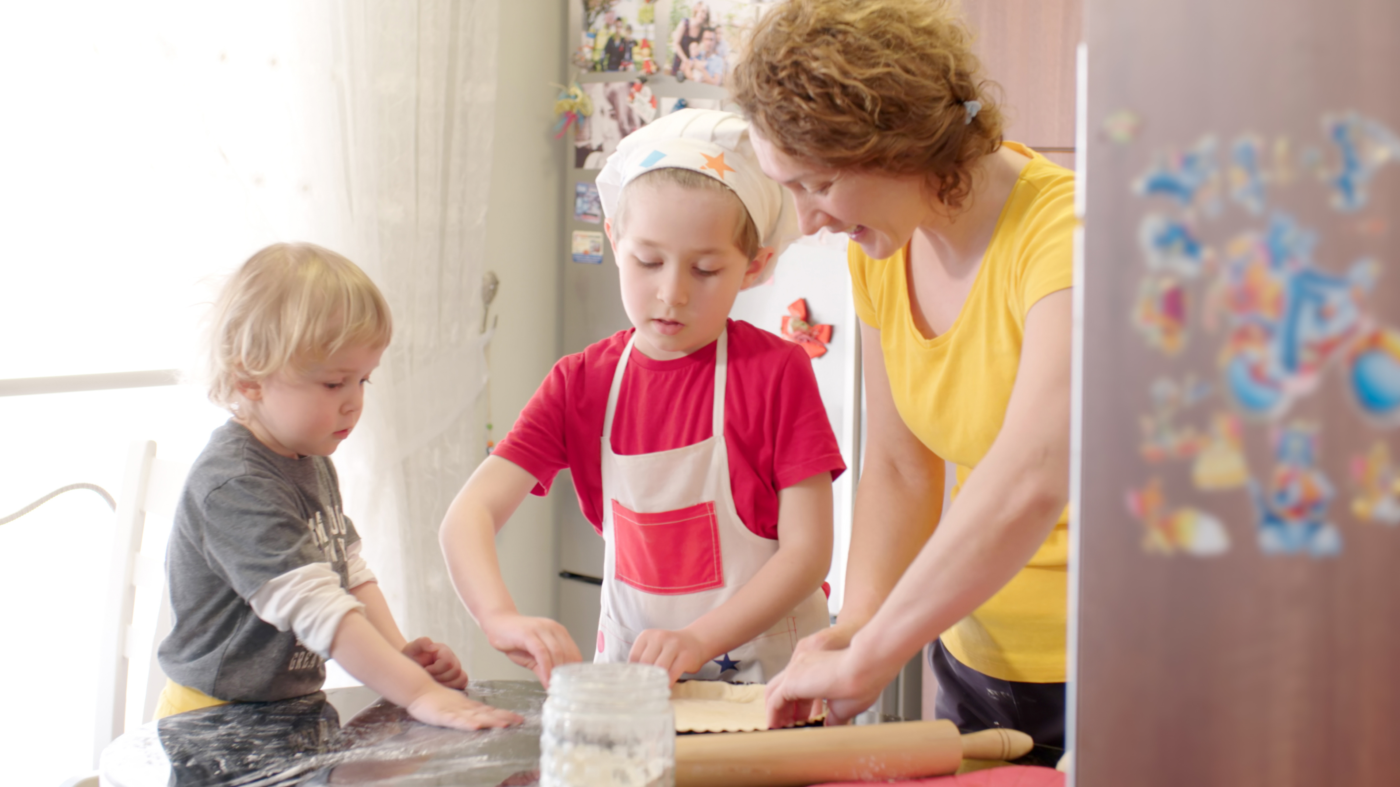You may have heard all about practical life activities as a part of the Montessori curriculum. At Inspire Kids Montessori, we focus on multiple activities that carry on into your home life. Think putting away objects, organizing utensils, or even folding napkins.
These seemingly mundane tasks are what Maria Montessori recognized as a golden opportunity for learning, especially when it comes to your kitchen! Learn how you can embed the Montessori curriculum into your day-to-day life easily (and the importance it can have in early learning!)
Practical Life Learning – A Montessori Curriculum Staple
Allowing the child to observe you performing tasks is an essential part of Montessori learning. Learning through a visual stimulus is a key part of understanding how to perform certain motor skills in developing children.
When a child begins to tie their shoes, they may benefit from observing you tying your shoes. You could offer them guidance to supplement their observations, which can help the child realize their potential and become a self-reliant individual. After all, you learned to tie your shoes from your parents’ example, too. But to transform simple observation into Montessori learning, you can apply practical life learning practices to your child’s at-home education.
The Categories of Practical Life
Practical life learning in the Montessori curriculum is divided into four categories. These categories not only help you evaluate your child’s progress, but their associated practices can also help your child grasp necessary skills in their day-to-day living.
Grace and Courtesy
Montessori learning focuses on providing activities that help a child understand the importance of manners and respect for others. In other words, grace and courtesy provide your child an understanding of appropriate public behavior.
Grace and courtesy practices in the kitchen can involve politely asking to eat before taking food, excusing themselves from the table, or assisting in the cleaning up process.
Consider applying grace and courtesy practices by encouraging the following behaviors:
- Waiting for their turn to receive the food
- Speaking respectfully when they’d like to perform a task
- Using table manners like chewing with their mouth closed
- Using polite phrases like “Please” and “Thank you”
- Passing food or drinks without spilling
Control of Movement
As your child grows, their ability to walk around, perform activities, and play is growing too. Maria Montessori understood that children also needed to control their movements to better adapt to their environment. In practical life learning, control of movement gives your child the ability to refine their motor skills.
The kitchen is a perfect opportunity to allow your child to explore their movements. Consider how your child can learn about safety, care, and precision in the kitchen and the real world.
You can focus on control of movement in the kitchen by letting your child perform these activities:
- Stir into a mixing bowl
- Carry a jug or cup of water
- Push chairs in
- Cut or prepare food (while being observed)
Care of Self
Care of self embodies the independent learning style of the Montessori curriculum. By learning to take care of themselves, the child is motivated to be responsible for themselves and the actions they take. Children also share their newfound skills with others by teaching them how to achieve similar goals, which could help them reinforce their understanding on those skills.
Bring care of self in the kitchen by prompting your child to:
- Wash their hands after a mess or before they eat
- Prepare a snack for themselves
- Pour their own glass of juice or water
- Set up their plate of food
Care of Environment
Care of environment allows the child to take pride in their home and their belongings. This type of responsibility creates a sense of duty but also joy in upkeep of their space. Your child may also perform better in collaboration with others to maintain the tidiness of their environment. Your participation and encouragement, or even the participation of another child, could help to motivate your child and keep them on track.
Promote care for their environment by prompting the following activities:
- Setting the table
- Cleaning the table or counter
- Sweeping any mess made on the kitchen floor
- Washing and drying dishes
The Importance of the Kitchen
If the above lists are any indication, the kitchen provides ample practical life learning opportunities for your child. The best part is, you can offer these lessons in your own home, with everyday activities and items. Some parents even purchase their child a Montessori-inspired kitchen playset that can offer the above lessons in more controlled ways.
Setting Up Your Kitchen for Montessori Learning
The Montessori curriculum requires preparation. If you want to host a Montessori-inspired education in your kitchen or on a kitchen playset, there are a few ways you can prepare.
Set up your kitchen or playset by doing the following:
- Separate glassware, dishware, silverware, and cooking utensils
- Pre portion amounts of food
- Use a few materials to not overwhelm your child
- Make easily recognizable areas for your child to organize their materials
These are only a few tips to make your kitchen Montessori ready. Many parents set up their own kitchen in innovative ways. And you can too! Bring your child into a kitchen and watch how practical life activities accelerate your child’s learning in the simplest ways.
Inspire Kids Montessori is a leading Montessori school in Arizona whose mission is to help our students reach their full potential. Follow us to learn more about Montessori teaching, tips, and tricks you can incorporate into your daily life.
For more information, contact us! We’re happy to answer any of your Montessori-based questions.

